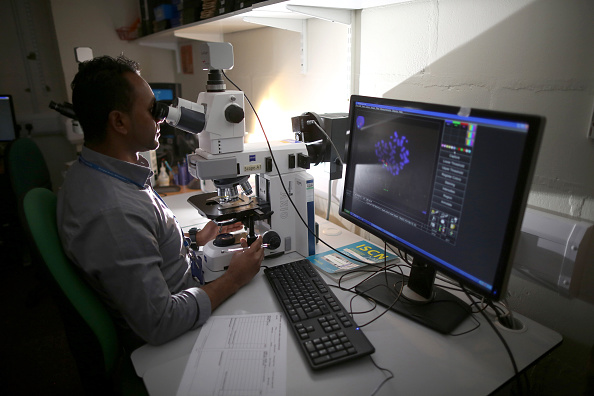Data is our NHS’ most precious asset – the next Prime Minister must protect it

Britain is about to have a new government.
And in a few months’ time, there could be a General Election resulting in the third government of 2019. On top of this, Brexit has still not been resolved.
But in the fog of these political crises, we must not lose sight of innovations which, if adopted effectively, will bring substantial economic and health benefits to this country – the most significant of which is artificial intelligence (AI).
Like so many sectors, healthcare is being radically changed by developments in AI and the use of big data. There is enormous potential to transform how we diagnose illness, treat patients, and understand complex conditions within our NHS.
But in addition to these incredible opportunities, AI could help to actually fund the health service. After all, royalties on intellectual property from scientific discoveries have provided income to our hospitals and universities, and help to fund the world-class scientific research for which the UK is justly renowned.
These returns can be significant, as we saw recently with the $1.3bn cheque written to the Medical Research Council’s technology transfer company LifeArc by Merck for the royalties on a new cancer drug developed from UK research over 10 years ago.
And the quality of an AI algorithm depends upon the quality of the data on which it is trained. The depth and breadth of the NHS means that it now has the best dataset in the world.
So while in 1948 the creation of the NHS was a bold political decision, in 2019 it is a huge competitive advantage for the UK.
Voters recognise this potential. New YouGov research, commissioned by my company Sensyne Health, shows that more than three quarters of the public support analysis of anonymised NHS patient data by medical researchers. However, people have strong views on the kinds of organisations they are comfortable accessing this data.
Just 13 per cent trust multinational tech companies to handle sensitive health data in a confidential manner, while 69 per cent raised concerns about it being analysed in countries with different laws governing data security. Only 11 per cent are happy for it to be analysed by businesses that do not pay tax here.
Therefore, the next Prime Minister surely has to outline how he will guarantee the security of Britain’s patient data. He also needs to decide what constitutes a fair deal for patients and for Britain. Some 86 per cent of people (and 84 per cent of MPs) agree that the NHS should receive a fair share of any financial gains made from AI-linked medical discoveries, and four fifths of the public explicitly call on the government to ensure that the NHS and taxpayers stand to benefit.
The UK has the opportunity to become a world leader in ethical data analysis and medical discovery. My company is working with a number of NHS Trusts to develop AI that analyses ethically-sourced, anonymised patient data. The NHS retains full control over the data, and Trusts will receive a financial return from the commercialisation of any discoveries.
But we are not the only ones trying to crack this; global companies are eyeing partnerships with the NHS and UK healthcare providers.
Clearly, we can’t afford to let this opportunity slip through our grasp. The NHS is a national asset and must remain that way. The public understandably want data analysis done here, and done right – with the NHS benefiting above all, both financially and in terms of improving patient care.
The next Prime Minister must prioritise creating a national data strategy for healthcare, so that the UK does not lose its competitive advantage or compromise the independence of NHS patient data. And he must heed public concern and protect the NHS as a national asset.
It could bring enormous benefits to the UK and to patients – long after the Brexit question is settled.